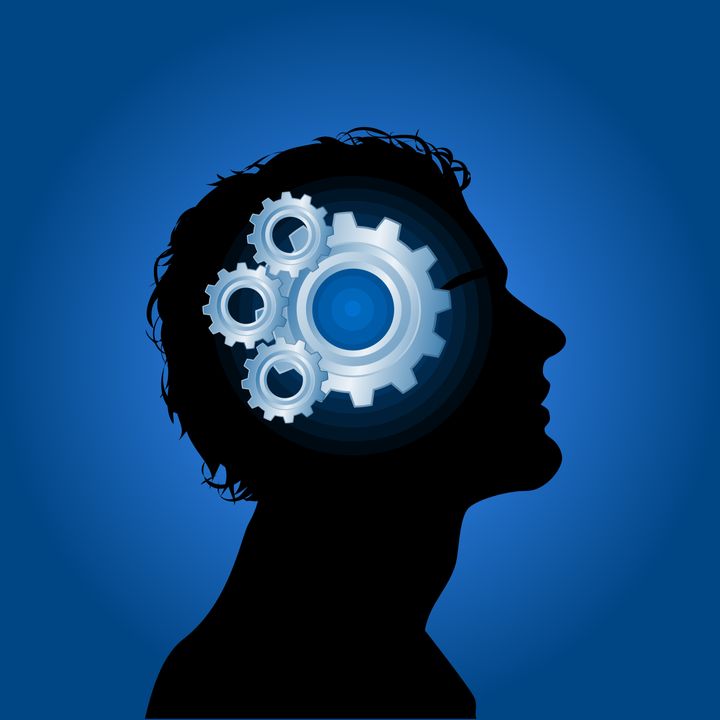
Can you imagine what Einstein was thinking? Or how about Stephen Hawking? Harnessing the power of their thoughts would be a huge breakthrough in understanding how to think through the basics of physics. Or how about learning how best to think about business from people such as Warren Buffett, or music from somebody such as Yo-Yo Ma. Or heck, if there was some way to know what your cat was really plotting ...
Quite seriously, however, there are products coming out on the market that are supposed to "read" what is happening in our thoughts and then translate them into useful information. The Globe and Mail recently highlighted a couple of examples, such as Muse (advertised as a semi-meditation device) and Emotiv (used to move around objects, but only virtually for the moment.)
Previously, we have also written about the use of brainwaves in art. For example, the Experience Helmet looks at biosignals emitted from one's mind (the alpha, beta, theta and delta waves) to recreate them in sound. The goal, according to creator Aiste Noreikaite, is to make an "audible reflection of one’s personal experience of the present moment."

What sorts of gaps in understanding could be harnessed by using the mind? Credit: Wikimedia Commons
Mind control is something explored in science fiction all the time. Those who are a fan of the Matrix franchise will remember that famous line from the first movie in 1999: "There is no spoon," delivered as Neo (Keanu Reeves) is watching a child bend a spoon out of shape with mind control alone. More recently, the movie Chronicle (2012) showed off the benefits and problems of teenagers who are able to move things around -- including cars and themselves. It appears that the power of thought might be something that can move us, literally.
This technology isn't as odd as you would think. The Globe points out a 2013 study in the Journal of Neural Engineering (led by University of Minnesota biomedical engineer Karl Lafleur) where engineers moved a toy helicopter through a course using their thoughts alone. The ultimate goal, researchers said at the time, is to figure out how to use brainwaves to move the limbs of quadriplegics. "We want to develop something non-invasive that can benefit lots of people, not just a limited number of patients," said team member Bin He, who is at the same university, in an interview with Nature.
Being able to translate thoughts into a form others could understand, however, could have immense benefit. Think about a school-age child learning algebra for the first time. The textbook is making things difficult. The explanation the teacher showed just isn't getting through. But imagine if the teacher could walk the child through the first equations in the teacher's head, in some way. Other applications could include trying to figure out language or better understand where to look first when looking at a painting critically.

The brain is a complex organ we are only just beginning to understand. Credit: Wikimedia Commons/Allan Ajifo
Mind reading, however, could also be used for less than savoury applications. This has also been explored in science fiction; in Minority Report (2002), people are jailed for crimes that they haven't committed yet. They have just thought about committing them. And as thought is a complex process, it could be quite easy to misunderstand someone who is just figuring something out. The dating scene would become a world of confusion, for example, as it takes some time to learn if you are in love with someone. Introducing your thoughts to a potential partner too soon could make things difficult.
There also are the potential security concerns. Concentration camp survivor Viktor Frankl famously spoke about the ability to use one's mind to choose reactions to your circumstances; "Everything can be taken from a man but one thing: the last of the human freedoms--to choose one's attitude in any given set of circumstances, to choose one's own way," he wrote in his 1946 biography. What that speaks to is also the ability to have privacy. No matter what you hear around you, no matter what you experience, for now you can seek refuge in your own thoughts. Are we willing to give that up for other uses?
It's a call to use the technology with caution. Still, it could be useful for some of the applications that we have described. How do you think mind-reading could be beneficial?
Top image: Harnessing brainwaves might be a way to improve education or mental health in the future. Credit: Wikimedia Commons








